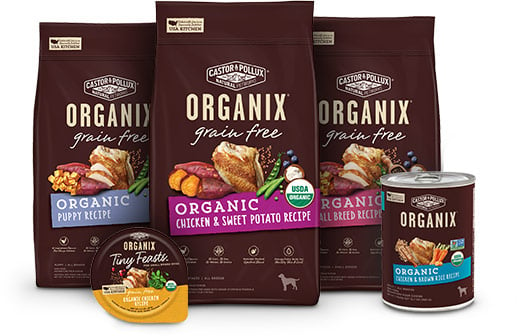
Perceived as being healthier alternatives to conventionally farmed foods, organics are often significantly more expensive – according to Consumer Reports, organic foods are on average almost 50% more expensive than conventional foods!
What about for pets? Compared to human foods, there are relatively few organic pet food options – any given retailer may only stock one or two brands. And like human foods, organic pet foods are considerably more expensive than traditional pet foods …. The obvious question is whether the added expense is an investment in good health for us, our pets, and the environment or whether we’re being taken for a ride.
In general, nutrient differences between conventional and organic foods seem to be minimal. Three large studies on organic foods …. showed that compared to conventional foods, organic foods had:
- Small increases in antioxidants
- Small increases in phosphorus
- Higher amounts of omega-3 fatty acids in organic meat and milk.
While these all seem like good things, the differences between the nutrient levels in the foods were small and unlikely to result in any health benefits. Nutrient levels in food can vary widely based on season, soil type, temperature, growing method, and shipping/storage times so that organic piece of fruit doesn’t necessarily have more nutrients than the conventional one next to it ….
Read full, original article: Organic Pet Foods: Optimal Health or Overhyped?
